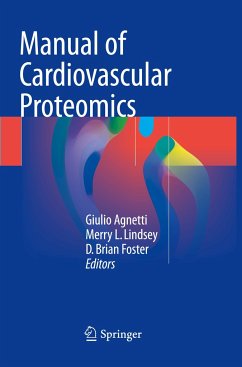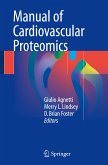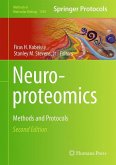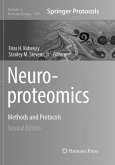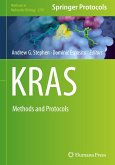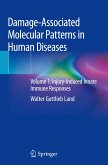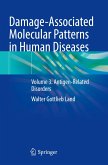This book fulfils the need to keep up with the high number of innovations in proteomics, and at the same time to warn the readers about the danger of manufacturers and scientists claims around new technologies. Mass spectrometry stands as the core technology in proteomics. The emerging field of targeted proteomics and its potential applications in the cardiovascular arena are also reviewed and discussed. A concluding section highilghts the promise of proteomics in the light of these recent developments.
As this technique and its applications have undergone remarkable advances in the past years, recent updates on proteomic applications are covered. Another key concept revealed by proteomic technologies is that the extent of protein post-translational modifications (PTMs) as well as their impact on the phenotype has been underestimated by pre-proteomics science. As such, part of the manual focuses on the emerging role of PTMs in basic cardiovascular sciences andin the clinics.
In fact, there is an emerging consensus that the detailed annotation of protein PTMs could lead to a more in-depth representation of biological systems, translating into more specific targets for therapy as well as biomarkers. Moreover, a recent trend is so-called "targeted proteomics". The approach was awarded the title of "Method of the Year" by Nature in 2013 (see the editorial by Vivien Marx in 1st issue of Nature in Jan 2013). According to a few proteomic scientists the emphasis should not be placed on generating long lists of proteins but lists of proteins with a true biological meaning.
As this technique and its applications have undergone remarkable advances in the past years, recent updates on proteomic applications are covered. Another key concept revealed by proteomic technologies is that the extent of protein post-translational modifications (PTMs) as well as their impact on the phenotype has been underestimated by pre-proteomics science. As such, part of the manual focuses on the emerging role of PTMs in basic cardiovascular sciences andin the clinics.
In fact, there is an emerging consensus that the detailed annotation of protein PTMs could lead to a more in-depth representation of biological systems, translating into more specific targets for therapy as well as biomarkers. Moreover, a recent trend is so-called "targeted proteomics". The approach was awarded the title of "Method of the Year" by Nature in 2013 (see the editorial by Vivien Marx in 1st issue of Nature in Jan 2013). According to a few proteomic scientists the emphasis should not be placed on generating long lists of proteins but lists of proteins with a true biological meaning.

